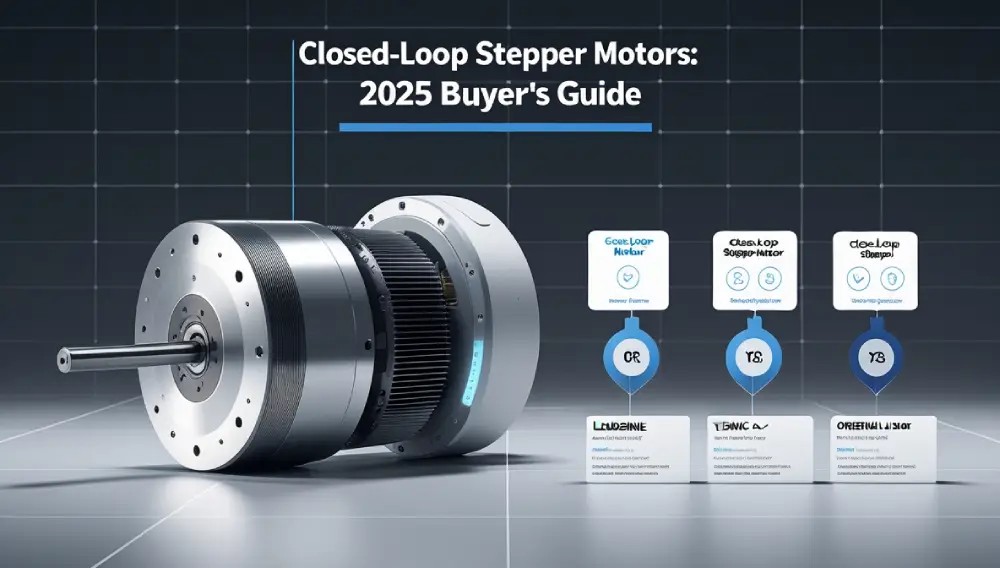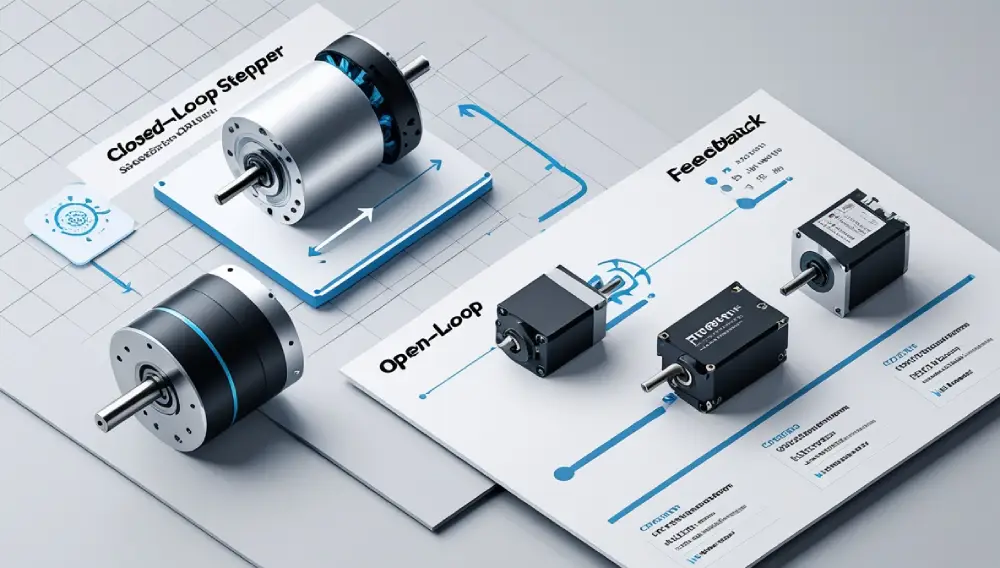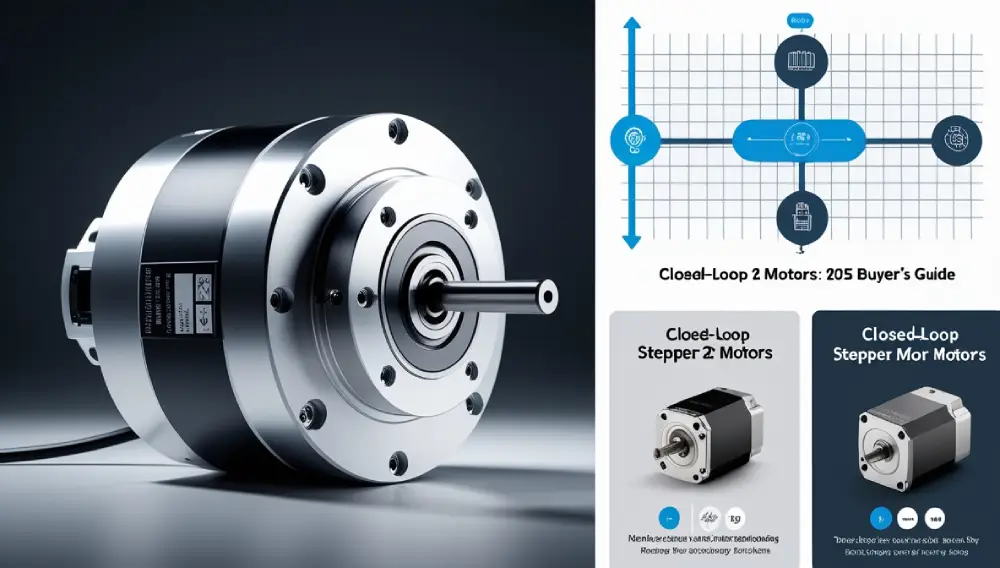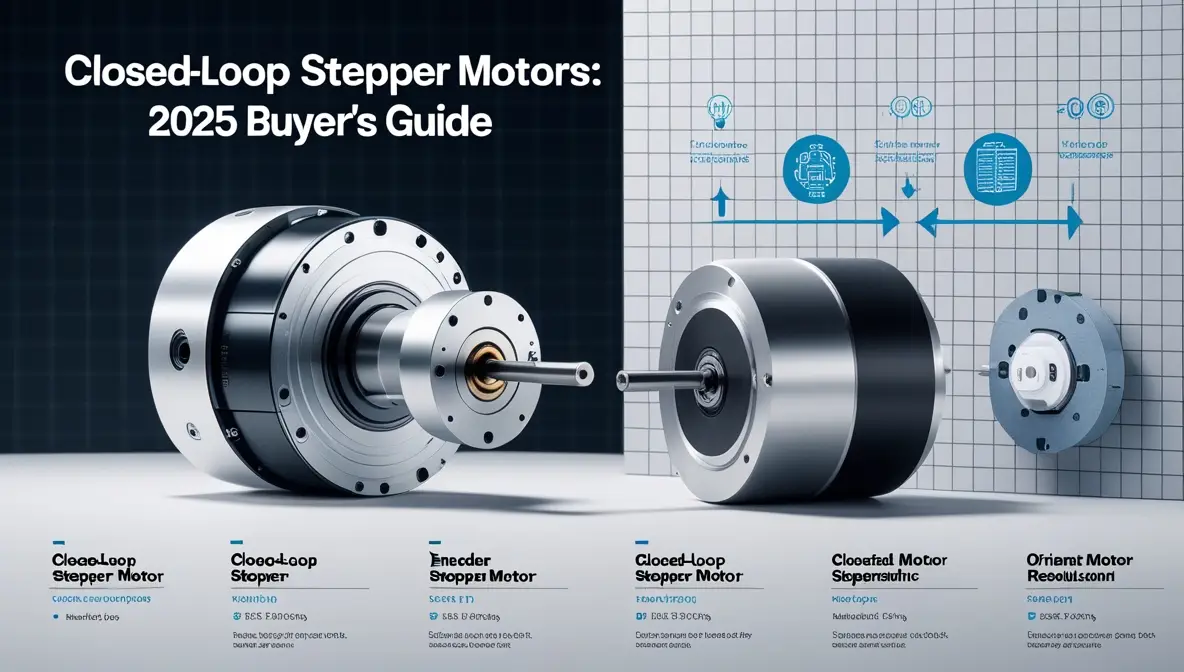Introduction
Have you ever wondered why traditional stepper motors can struggle with precision tasks? The answer lies in their design. Closed loop stepper motors are a solution that combines the benefits of stepper motors with a feedback system. This means they can correct their position in real-time, making them more accurate and reliable. In this article, we will explore what closed loop stepper motors are, how they work, their advantages over open-loop motors, and their real-world applications.
What Is a Closed Loop Stepper Motor?
A closed loop stepper motor is an advanced type of stepper motor that incorporates a feedback mechanism, usually in the form of an encoder.

Beginner’s Definition
In simple terms, it’s a motor that can adjust its movements based on feedback, ensuring it stays on track.
Technical Definition
Technically, a closed loop stepper motor uses an encoder to monitor its position and speed. This feedback allows the motor to make real-time corrections, enhancing its performance in various applications.
Diagram
Consider including a diagram showing the components of a closed loop stepper motor, such as the motor, encoder, and controller, to visualize how they interact.
3. How Does It Work?
The operation of a closed loop stepper motor involves several components working together:
- Stepper Motor: The core component that converts electrical energy into mechanical movement.
- Encoder: A device that tracks the motor’s position and speed, sending this information back to the controller.
- Controller: This unit processes the feedback from the encoder and sends commands to the motor to adjust its position.

Real-Time Position Correction
When the motor is under load, the encoder continuously monitors its position. If the motor drifts from its intended path, the controller makes adjustments to correct its position, ensuring accuracy.
Comparison with Open Loop
In contrast, an open-loop stepper motor does not have feedback. If it misses steps due to excessive load, it cannot correct itself, leading to inaccuracies.
4. Open Loop vs Closed Loop: What’s the Difference?
Here’s a quick comparison to highlight the differences:
| Feature | Open Loop Stepper Motor | Closed Loop Stepper Motor |
| Feedback | None | Yes (using encoder) |
| Accuracy | Moderate | High |
| Torque Under Load | May lose steps | Maintains torque |
| Complexity | Simple | More complex |
| Cost | Generally lower | Higher due to additional components |

Pros & Cons
- Open Loop: Simpler and less expensive but less accurate.
- Closed Loop: More accurate and reliable but involves higher costs and complexity.
When to Use Which
Use a closed loop stepper motor in applications requiring high precision and reliability, such as CNC machines and robotics. Open loop motors can suffice for simpler tasks where cost is a concern.
5. Advantages of Closed Loop Stepper Motors
1. Accuracy and Position Control
Closed loop stepper motors provide superior accuracy due to their feedback systems, ensuring they maintain their intended position even under varying loads.
2. Elimination of Missed Steps
Because they can adjust their position in real-time, these motors do not suffer from missed steps, a common issue with open-loop systems.
3. Improved Torque at Higher Speeds
Closed loop systems can deliver better torque at higher speeds, making them suitable for demanding applications.
4. Efficiency and Heat Management
These motors are generally more efficient than their open-loop counterparts, leading to less heat generation and longer lifespans.
6. Applications
Closed loop stepper motors are used in various fields, including:
- CNC and 3D Printing: For precise movements and cutting.
- Robotics and Automation: To ensure accurate positioning in robotic arms.
- Conveyor Systems: For reliable material handling.
- Medical Equipment and Optics: In devices requiring precise movements, like surgical robots and optical systems.
7. Top Closed Loop Stepper Motor Brands or Models
Here are some popular brands and models to consider:
- Leadshine: Known for its reliable closed loop stepper motors with various torque ratings.
- Teknic: Offers high-performance motors with excellent feedback systems.
- Oriental Motor: Provides a range of closed loop stepper motors suited for different applications.
8. Choosing the Right One: Buying Guide
When selecting a closed loop stepper motor, consider the following factors:
- Motor Size: Common sizes include NEMA 17, 23, and 34.
- Encoder Resolution: Higher resolution provides better accuracy.
- Holding Torque: Ensure it meets the demands of your application.
- Driver Compatibility: Check that the motor is compatible with your existing drivers.
- Voltage & Current Ratings: Make sure these match your power supply.
9. How to Use/Control One
Wiring and Drivers
Using a closed loop stepper motor involves connecting it to a suitable driver, which controls the motor based on input signals.
10. Conclusion
In summary, closed loop stepper motors are an excellent choice for applications requiring precision and reliability. Their ability to self-correct and maintain torque under load makes them superior to traditional open-loop systems. When choosing a closed loop stepper motor, keep in mind factors like motor size, encoder resolution, and compatibility with your existing systems.
For further reading, check out related content on stepper motors, encoders, and servo motors.
11. FAQ Section
Can a closed loop stepper lose steps?
No, closed loop steppers are designed to correct their position in real-time, preventing missed steps.
Is a closed loop stepper better than a servo?
It depends on the application. Closed loop steppers offer simplicity and precision, while servos excel in speed and torque.
How does the feedback system work?
The feedback system uses an encoder to monitor the motor’s position and speed, allowing for real-time adjustments.
Can I retrofit a stepper to closed loop?
Yes, it is possible to retrofit an open-loop stepper motor with a feedback system, but it requires additional components.
By understanding the workings and benefits of closed loop stepper motors, you can make informed decisions in your engineering projects and DIY endeavors. Happy building!

